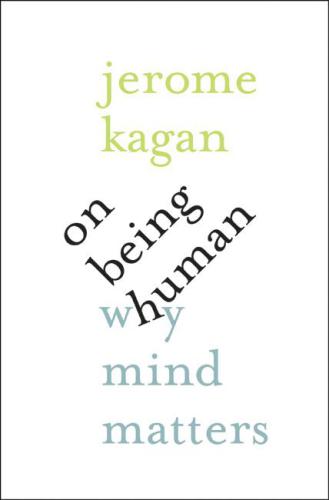
On Being Human
Why Mind Matters
کتاب های مرتبط
- اطلاعات
- نقد و بررسی
- دیدگاه کاربران
نقد و بررسی

February 29, 2016
Inspired by the essays of Michel de Montaigne, Kagan (Human Spark), emeritus professor of psychology at Harvard, forays into epistemology, semantics, human nature, and cultural relativism as he defends the idea that certain features of mind—feeling, knowing, understanding—cannot be explained solely by brain function. He criticizes neurobiologists who misapply the language of psychology to physiology, use animals as models, and seek genetic explanations for emergent properties of thought while rejecting “mental processes as having any autonomous causal power because they are invisible and nonmaterial.” Similar sentiment is leveled at researchers who rely on such measurements as blood flow scans without accounting for the effects of setting and complex associations. Kagan is equally harsh on psychologists, accusing them of failing to recognize the gap between reported and actual beliefs and feelings, and of a misplaced attraction to proving popular ideas. He also has much to say on the value of teaching complex thinking instead of memorization of facts, and the value of science that starts from observation rather than preconceived notions. Kagan’s thought is easy to follow, his prose pleasant to read, and his opinions clear, though his straw man
arguments against his intellectual peers do not always convince the reader.

February 15, 2016
Nature or nurture? The answer, writes Kagan (The Human Spark: The Science of Human Development, 2013, etc.), eminent Harvard emeritus professor of psychology, is yes. How we think and how we know defines who we are. There is a literalness to this commonplace. Kagan steps outside the mind to look at the body, and the body's environment, to arrive at some arrestingly apropos observations. For instance, a child who grows up in poverty is likely, in a "robust relationship," to develop a chronic inflammatory state that yields high rates of diabetes, stroke, heart attack, and the like. Though we do not yet know what it is precisely about poverty that triggers this inflammation, we can reasonably presume that environmental factors are at work. Interior things matter, though. Opening this set of related essays, Kagan observes that "humans are the only species that operates in two realities," those realities being the "schemata" of sensation and words, the latter of which can be connected to schemata, to real things, but which can also be connected to abstractions--ideas that have reality inside our minds alone. Our worlds are made up of complex networks of words and schemata, Kagan continues, of the natural and the nurtural, and our perceptions are constantly changing. Thus it is that "misunderstandings of a speaker's intended sense meaning are common because speakers and listeners occasionally activate different networks for the same words." There's more to misunderstanding, of course, some of it arising from our addiction to classifying people as greater or lesser beings than we, some from our genetic predispositions, some from where we are in history (for emotions change with time)--all matters that Kagan treats lucidly but not always lightly. Indeed, the author commands a broader range of scientific and humanistic references than most of his readers are likely to, and his book is sometimes challenging, though never unnecessarily so. "Nature is obsessed with particularities," writes Kagan. A particularly fruitful book for students of the mind.
COPYRIGHT(2016) Kirkus Reviews, ALL RIGHTS RESERVED.

Starred review from February 15, 2016
Renowned psychologist Kagan's (emeritus psychology, Harvard Univ.; The Human Spark) main contribution to psychology is the idea that basic temperament is innate rather than a result of environmental conditions. Now, in possibly the only Ivy League press book that contains the recommendation that it is "best read in the evening, preferably over a glass of wine," he reconsiders some of the problems that preoccupy neuro- and social scientists and clearly feels that the pendulum has swung too far toward the former in the nature/nurture debate. In Michel de Montaigne-like essays with titles such as "Hyping Genes," "Can Brain Explain Mind?," "The Family's Contribution," and "What Is Education For?," Kagan defends the importance of traditional concerns such as social status, family dynamics, and behavioral setting. VERDICT Kagan's work has always been lively and engaging. While more an early-morning-with-coffee read, this volume is an important reminder that behavior is multidetermined. Highly recommended for readers who enjoy the work of Steven Pinker, Oliver Sacks, or Malcolm Gladwell.--Mary Ann Hughes, Shelton, WA
Copyright 2016 Library Journal, LLC Used with permission.

























دیدگاه کاربران